You’re hot, then you’re cold. You’re anxious, then you’re happy. Menopause comes with all sorts of (not-so) fun symptoms that can get in the way. You can use many herbs to help ease these symptoms, and tea is one of the best ways to enjoy them. Here are some of the best herbal teas for menopause!
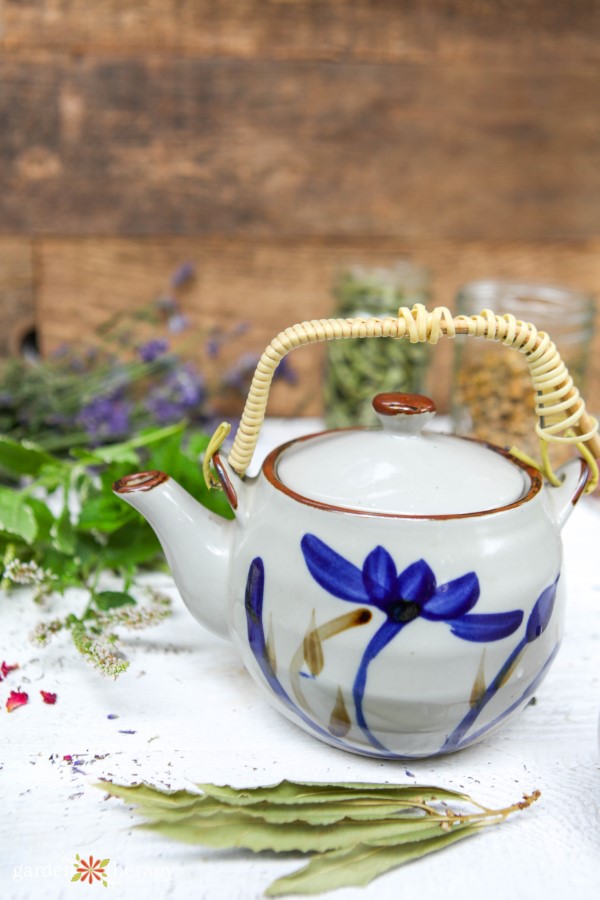
This post will cover…
- Benefits of Tea for Menopause
- The Best Teas for Menopause
- Hops
- St. John’s Wort
- Sage
- Asian Ginseng
- Lemon Balm
- Valerian
- Frequently Asked Questions About Teas for Menopause
Benefits of Tea for Menopause
According to a survey, 51% of postmenopausal women reported that they were happiest and the most fulfilled when they were 50-65. It wasn’t their 20s, 30s, or even 40s that they felt the best. It was after menopause!
This is a time when we truly come into our own and embrace the woman we are meant to be. But unfortunately, there are a few not-so-nice side effects from going through menopause that we must go through first.
Menopausal symptoms can include mood swings, insomnia, hot flashes, aching muscles, fatigue, migraines, vaginal dryness, and PMS symptoms. These symptoms can last anywhere from a few months to several years.
Menopause is something all women must go through, so the best way to handle it is to try to mitigate the symptoms. Luckily, mother nature has provided us with plenty of amazing herbs to assist us on our menopausal journey.
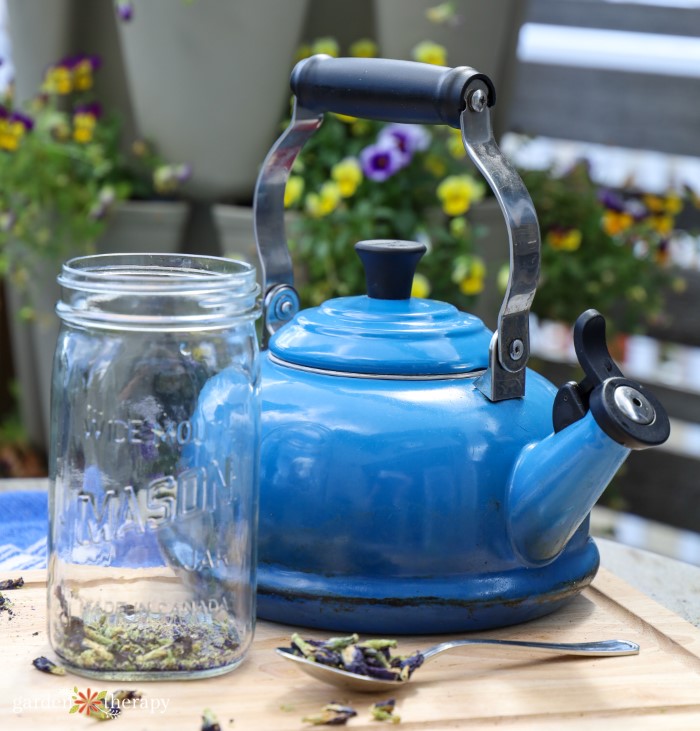
6 Herbs that Make the Best Teas for Menopause
Making herbal tea is one of the easiest ways to enjoy the benefits of herbs, and it’s a relaxing way to start or end the day. Check out my instructions for making herbal tea first so you can get as many properties as possible from the herbs.
Many of these teas for menopause below aid with changing hormones, so pregnant women and prepubescent children should exert caution. Always check with your doctor before taking any of these herbs.
1. Hops
Humulus lupulus
You may know hops as the beery flower or a beautiful vine to have in the garden, but it’s also a useful herb for menopausal women.
Historically, it has been used to help with menstruation issues and women in menopause due to its estrogenic properties.
Also known as a sleep aid, it can help to calm nerves and improve sleep.
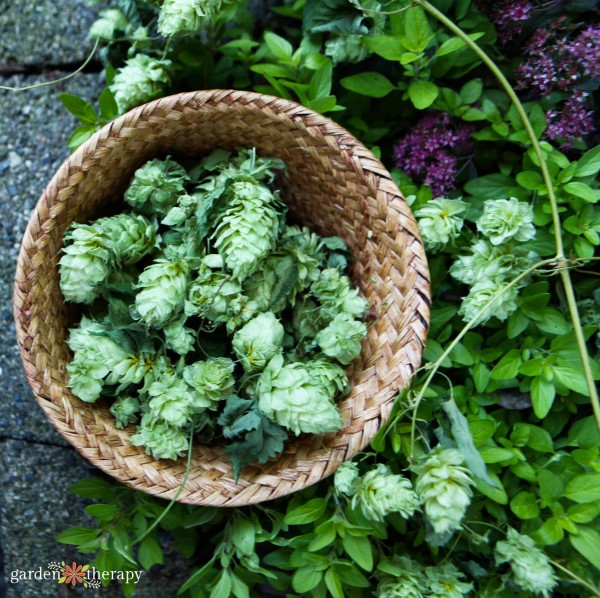
2. St. John’s Wort
Hypericum perforatum
St. John’s Wort is a cheery yellow flower with plenty of herbal properties.
Much like its uplifting appearance, it’s known as a mood booster to help with mood swings and anxiety. As a well-known nervine, it has shown to be extremely effective as an anti-depressant for those with menopausal symptoms.
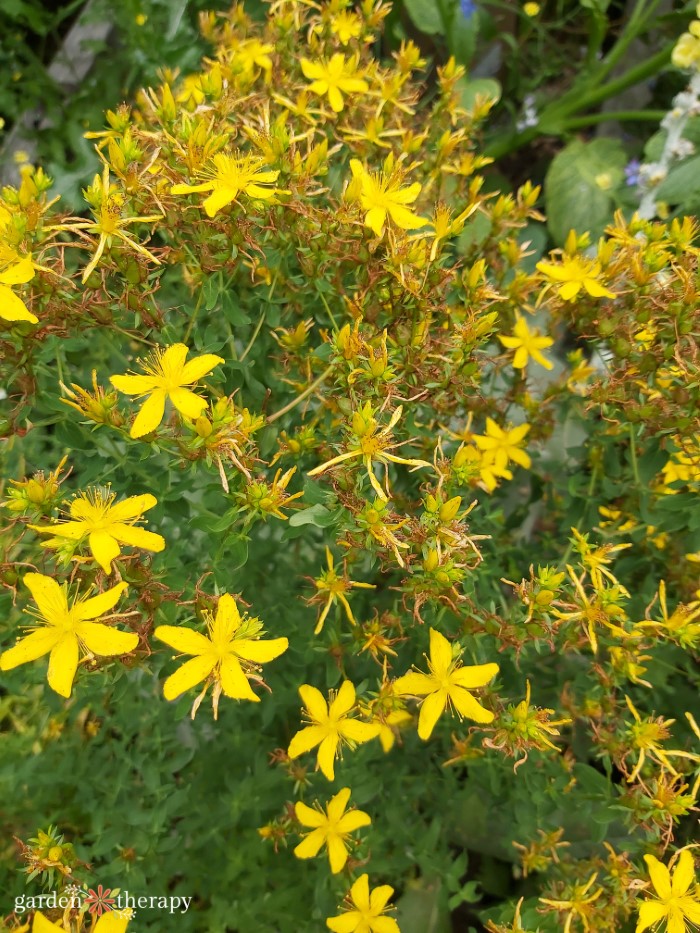
3. Sage
Saliva Officinalis
Sage tastes delicious on a plate and is also one of the most powerful herbs for menopausal women. Among many other properties, it can help with anxiety, depression, night sweats, hot flashes, libido, vaginal dryness, and overall menopausal symptoms from hormone changes.
Sage is known to help with fluid regulation for women, drying up breast milk, slowing heavy menstrual bleeding, and relieving excessive discharge.
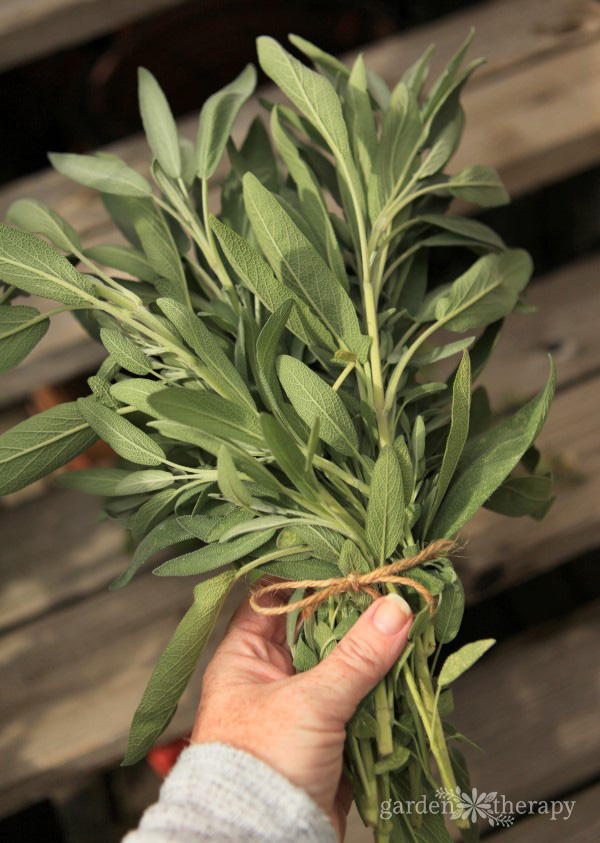
4. Asian Ginseng
Panax Ginseng
Ginseng is a stout, slow-growing plant with big fleshy roots, commonly used in Traditional Chinese Medicine. While there are a few types of the herb, Asian ginseng is best known for helping with menopause.
Asian ginseng can help to increase sex drive, improve mood and fatigue, and help with overall well-being for menopausal women. It also has anti-inflammatory properties and is beneficial in treating depression and mood disorders.
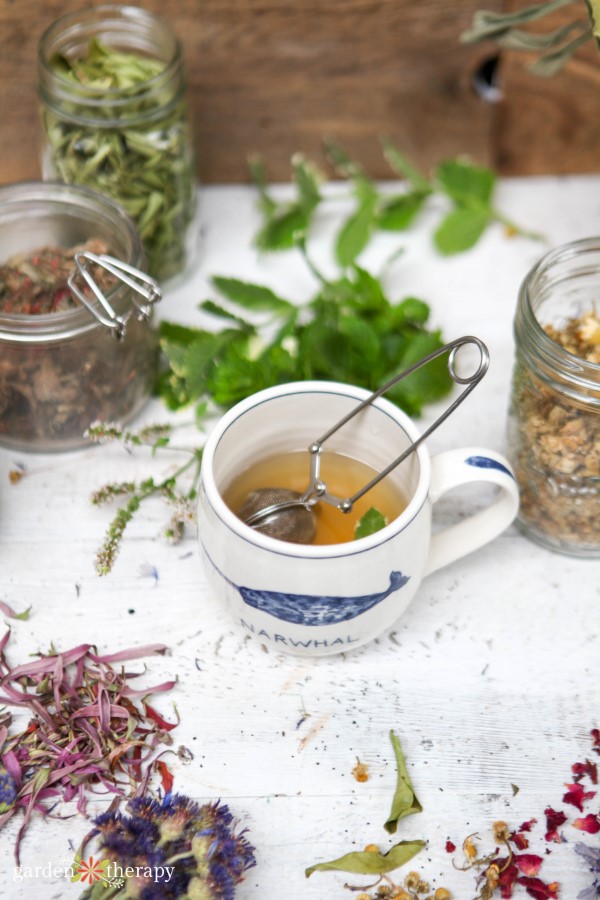
5. Lemon Balm
Melissa Officinalis
Out of all the teas for menopause on this list, lemon balm may have the most delicious flavour. Mildly lemony, it also has a strong lemon smell.
Lemon balm is known most as a cooling nervine, used even before the middle ages. It helps to relieve nervousness and promote relaxation, which can also help when you have trouble sleeping. The calming nature can also help with digestive issues due to anxiety and depression.
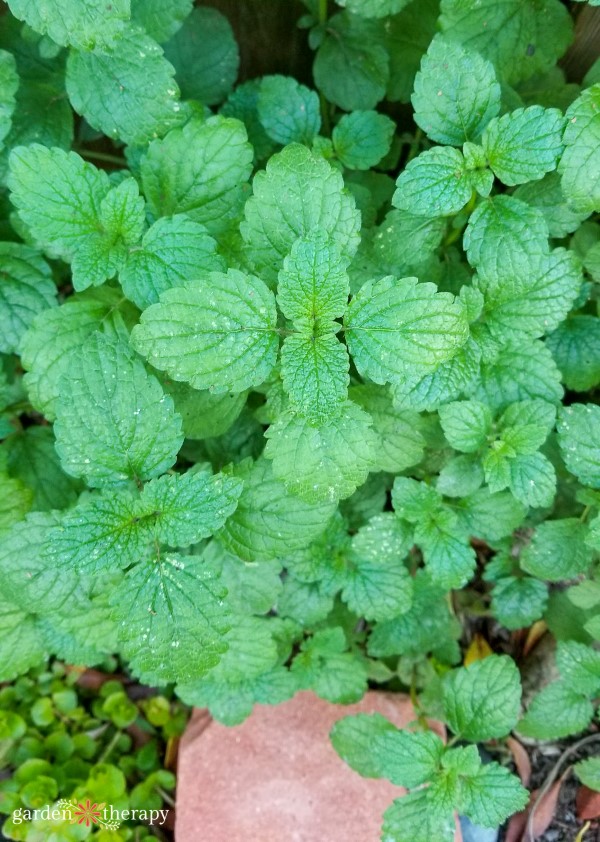
6. Valerian
Valerian Officinalis
This hardy perennial has small pink flowers and plenty of green foliage. You will see it listed in many nighttime teas, as its roots are known for promoting calmness.
Valerian has been used to help with menstrual cramps and mood swings for menopausal women. It can treat hot flashes, with 60% of menopausal women claiming it helped reduce the severity of hot flashes.
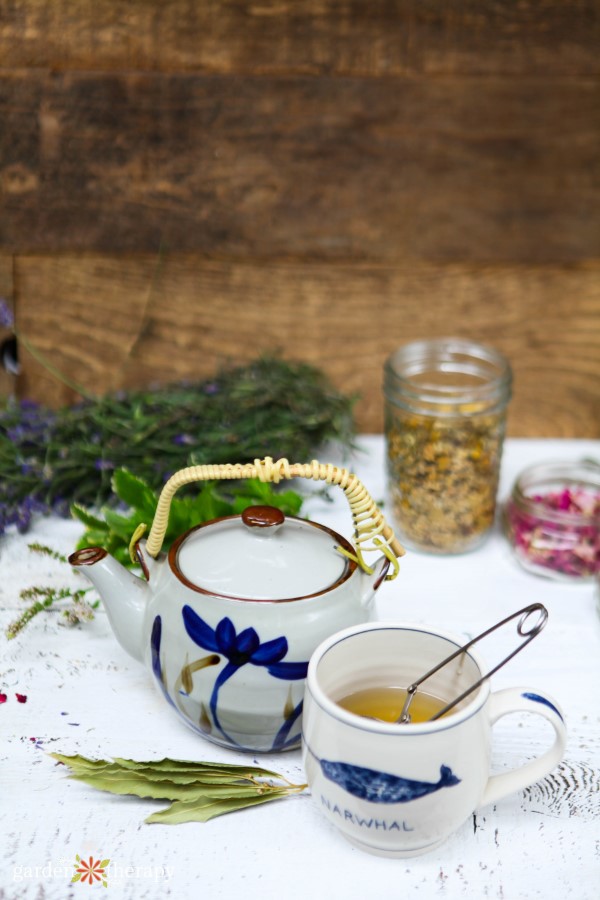
Frequently Asked Questions About Teas for Menopause
Green tea is known for many health benefits, such as aiding digestion, heart health, the liver, type 2 diabetes, and more. However, it doesn’t have many specific benefits that may aid with menopausal symptoms.
It has caffeine, making it a morning stimulant for those with fatigue. It also is greatly connected with weight loss, making it one of the best teas for menopause belly.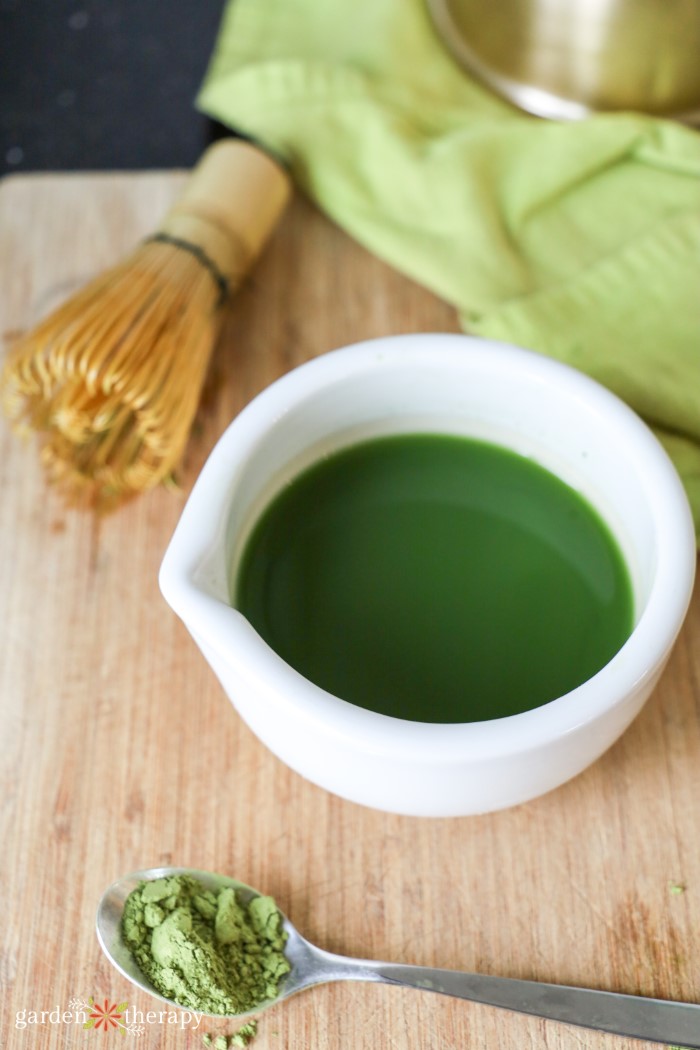
Chamomile is one of the most touted herbs in the tea world, and for a good reason! It’s known mostly as an anti-inflammatory and nervine. It’s known to help ease anxiety, which may help during mood swings. It also eases menstrual cramping and the digestive system. Studies have shown that it can help with PMS symptoms.
Sage tea is one of the most effective teas for menopause, though it’s not a common tea you might find in the grocery store.
To make sage tea, you will want to steep 1-2 tsp of dried or fresh sage leaves in warm water. Do not steep it in hot water, or you may lose many of its beneficial properties. Cover it while steeping to help keep the heat and oils in. Steep for 10-15 minutes.
Drink 1-2 cups in the morning. To help stop hot flashes and night sweats, drink another cup 1-2 hours before bed.
First of all, you may prefer to enjoy the tea as is—the herbal qualities and flavours are quite lovely. That being said, if you are used to sweetened beverages, it can be quite a shock to switch to unsweetened herbal tea.
Thankfully, there are many ways you can add a hint of sweetness to your teas by using one of these natural sweeteners (many of which can be grown in your garden!).
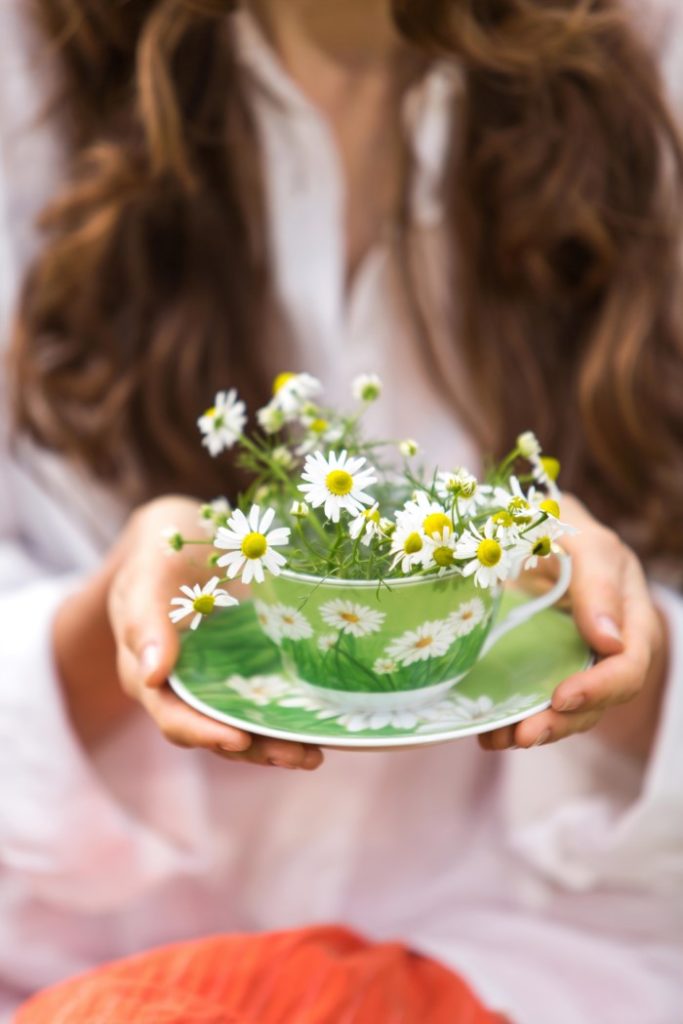

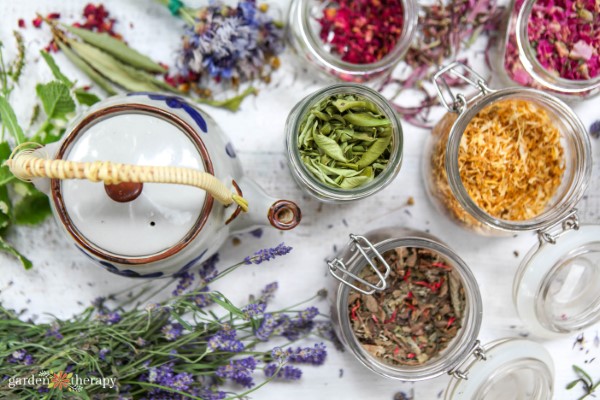
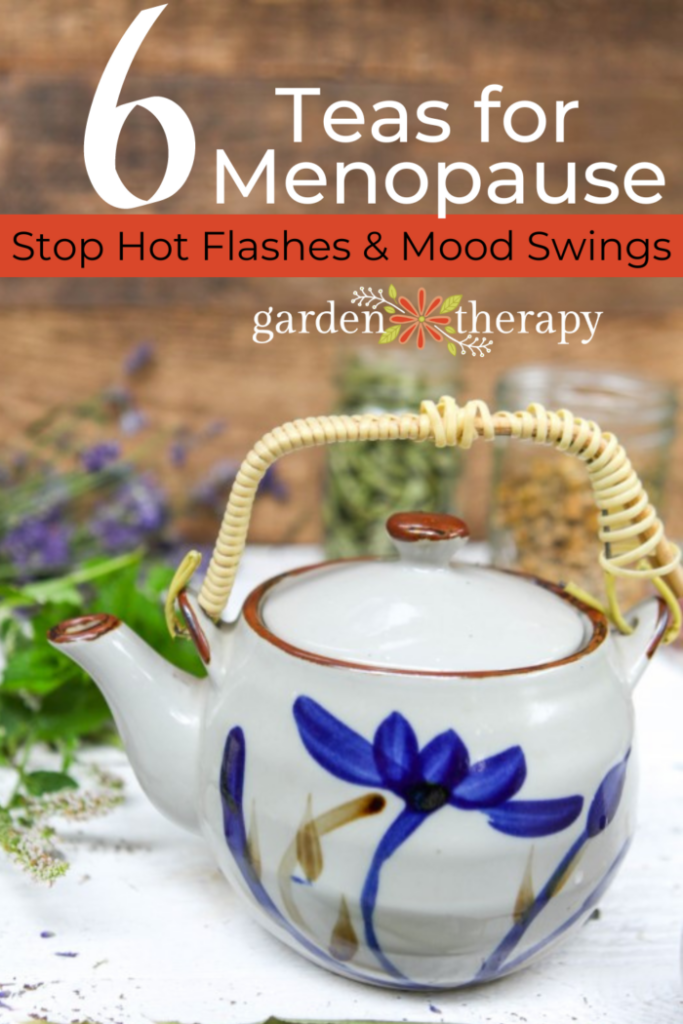
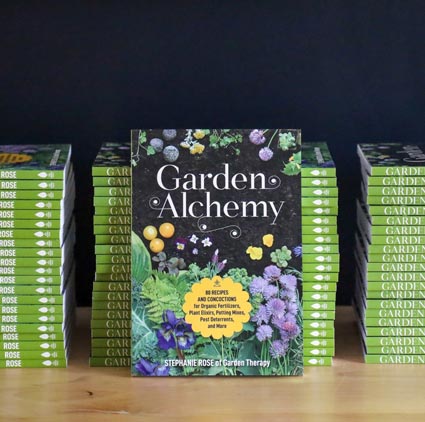
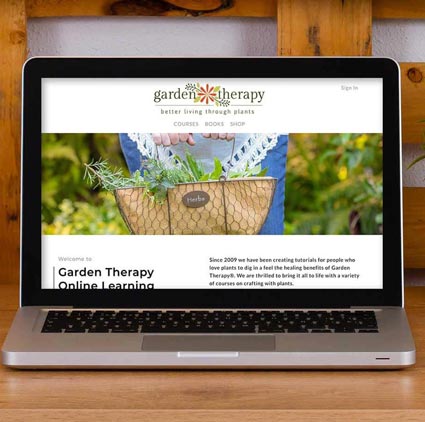

Oh, my gosh, so elated, extraordinary important information. Thank you
I hear you! :)